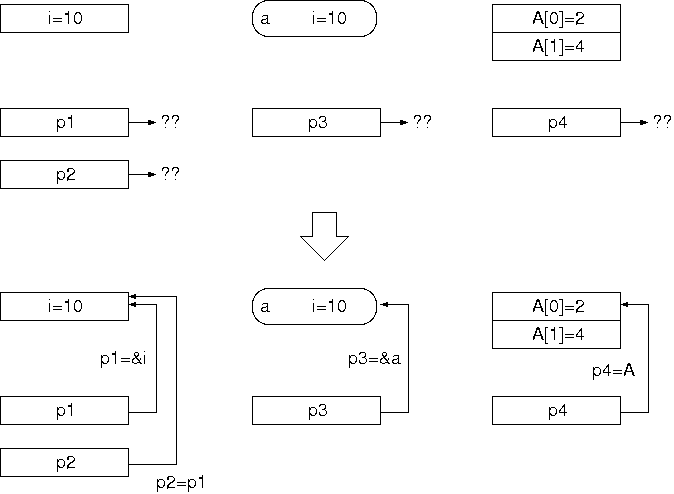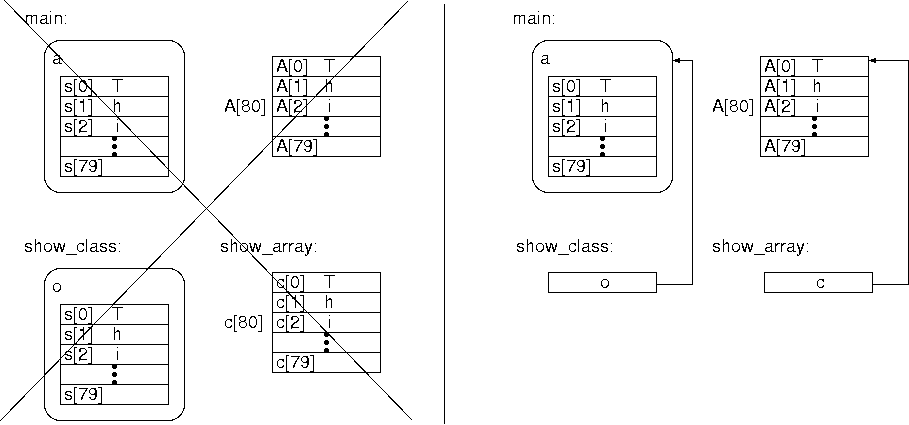
#include <iostream>
using namespace std;
class samp{
int i; // private なメンバ変数 (private キーワードの省略)
public:
samp(int n){i=n;} // 引数つきのコンストラクタ
void set_i(int n){i=n;} // i に値をセット
int get_i(){return i;} // i の値を取得
};
int main(){
// 通常の変数の宣言
int i=10;
samp a(10); // 初期値 10 でクラス samp のオブジェクト a を宣言
int A[2] = {2, 4}; // 要素数 2 の配列
// ポインタ変数の宣言
int *p1;
int *p2;
samp *p3;
int *p4;
// ポインタの初期化
p1 = &i; // 変数からのアドレスの取り出し
p2 = p1; // p2 の指す先を p1 と同じにする
p3 = &a; // クラス変数からのアドレスの取り出し
p4 = A; // p4 = &A[0]; ともかける
// ポインタの利用
cout << "p1 の指す値は:" << *p1 << "\n";
cout << "p2 の指す値は:" << *p2 << "\n";
cout << "p3 の指すクラスのメンバ変数は:" << p3->get_i() << "\n";
cout << "p4 の指す配列の要素は:" << p4[0] << "," << p4[1] << "\n";
return 0;
}
|
実行結果: p1 の指す値は:10 p2 の指す値は:10 p3 の指すクラスのメンバ変数は:10 p4 の指す配列の要素は:2,4 |

#include <iostream>
#include <cstring>
using namespace std;
// クラス宣言
class samp{
char s[80];// 80 文字以内の文字列をメンバ変数として持つ
public:
// 以下のように簡単なメンバ関数であればクラス定義内で定義できる
void show(){ cout << s << "\n";} // クラス宣言部でも関数を定義できる
void set(char *str){ strcpy(s,str); } // 80 文字以上の文字列をセットしないこと
};
// C 言語的な関数を 2 つ定義
void show_array(char *c){
cout << c << "\n";
}
void show_class(samp *o){
o->show();
}
int main(){
char A[80]="This is a test of array.";
samp a;
a.set("This is a test of class.");
show_array(A);
show_class(&a);
return 0;
}
|
